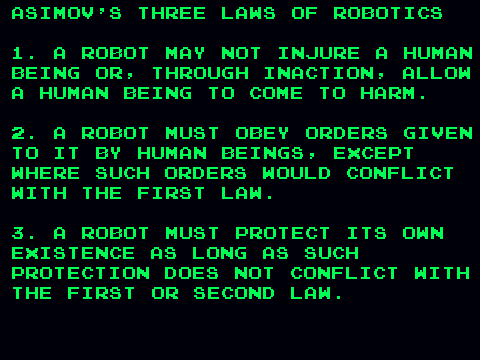CONTEMPORARY CONTEXTS FOR CREATIVE WRITING
Everything is going to be fine everything is going to be fine everything is going to be fine everything is going to be fine everything is going to be find everything is going to be fine
TECHNOLOGY AND WRITING
‘What is a book? And what will change if we read onscreen rather than by turning the pages of a physical object? What will we gain and, more importantly, what will we lose? Old-fashioned habits, perhaps. A certain sense of the sacred that has surrounded the book in a civilisation that has made it our holy of holies. A peculiar intimacy between the author and reader, which the concept of hyper-textuality is bound to damage. A sense of existing in a self-contained world that the book and, along with it, certain ways of reading used to represent.’
Umberto Eco, This is Not the End of the Book
HOW DO YOU THINK WRITING WORDS INTENDED TO BE READ ON DIGITAL DEVICES DIFFERS FROM WRITING FOR THE PRINTED PAGE - IF IT DOES DIFFER?
I AM JUST SHOWING OFF WHAT COMPUTERS CAN DO HERE, OK SHEEPLE?
THIS CHANGES NOTHING
Eco:
‘The book is like the spoon, scissors, the hammer, the wheel. Once invented, it cannot be improved. You cannot make a spoon that is better than a spoon…. Perhaps it will evolve in terms of components; perhaps the pages will no longer be made of paper. But it will still be the same thing.’
‘We can still read a text printed five centuries ago. But you can no longer read, or rather watch, a video or cd-rom that is only a few years old. Unless you have a space for a lot of old computers in your basement.’
WHAT DOES IT MEAN TO WRITE WELL ABOUT TECHNOLOGY?
Machines and technology are mostly what we associate science fiction with, though some stories such as Flowers for Algernon feature very little machinery or technology (this is why I tend to recommend Flowers for anyone who pulls a face when I say I enjoy sci-fi). But also, the story this week, The Ones Who Walk Away From Omelas, was the winner of the Hugo Award in 1973 but does not mention anything about technology or space once, it's examining our world and our relationships with each other through a lens of something else. That being said, sci-fi most often examines the relationship between technology and humanity, whether through the obvious ideas of human-machine melting pots of cyborgs and cyberpunks (see, robocop, terminator, the matrix), or through our close relationships with machine life(HAL from Arthur C Clarke’s 2001: A Space Odyssey, The Time Machine by HG Wells, etc).
There are exceptions to technology being completely exclusive to the science fiction canon. Take Douglas Coupland, for example. He is very much connected with technology and the development of software, media, pop culture, etc but manages to avoid the ski-fi branding iron. Why is this?
Some recommended further reading if anyone cares:
- This is Not the End of the Book - Umberto Eco & Jean-Claude Carriere
- Neuromancer - William Gibson (813.5 GIB)
- Ready Player One - Ernest Cline
- New Model Army - Adam Roberts
- The Complete Robot - Isaac Asimov
Are you over-connected? by Tom Hatfield (link so you can read with photos in the right place)
http://www.bbc.com/future/story/20150310-are-you-over-connected


